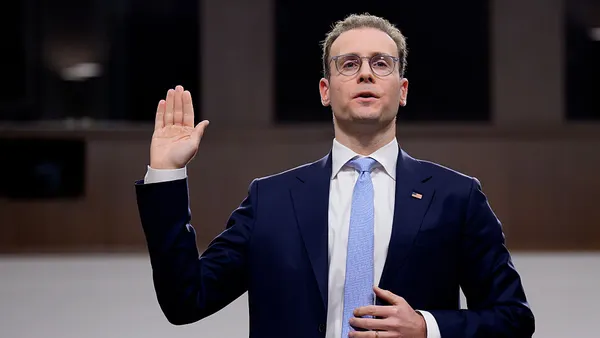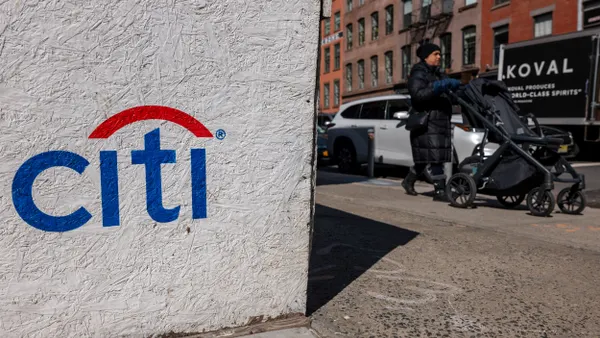Capital One CEO Richard Fairbank has agreed to pay $637,950 to settle allegations he repeatedly failed to disclose stock awards to federal authorities, the Federal Trade Commission (FTC) announced Thursday.
Fairbank received 101,148 Capital One shares as part of a 2018 compensation package, expanding his holdings to $168 million, according to a Justice Department complaint. The FTC alleged that, in doing so, Fairbank broke the Hart-Scott-Rodino Act, which requires stock transactions above a certain threshold be reported before the transfer is finalized.
Thursday's penalty marks the third violation of Hart-Scott-Rodino for Fairbank, who also failed to comply with the law in 1999 and 2004, said the FTC, which added it gave the CEO a "free pass" for those instances.
Fairbank said in a 2008 corrective filing that the violations were inadvertent, adding he would put in place a system to ensure Hart-Scott-Rodino notifications would be filed correctly.
The $640,000 penalty represents a downward revision of a significantly heftier fine. The FTC said Fairbank was in violation of Hart-Scott-Rodino from March 8, 2018, until Fairbank made a corrective filing Jan. 17, 2020. The maximum penalty for a Hart-Scott-Rodino violation is $43,792 per day. At 680 days, that would put the maximum penalty at more than $29.7 million.
Fairbank, whose net worth Bloomberg pegged at $1.1 billion, does not earn a salary. He is paid primarily in stock awards. Fairbank pocketed $16.8 million worth of stock, along with a $3 million bonus, according to company filings.
"As the CEO of one of America’s largest banks, Richard Fairbank repeatedly broke the law," said Holly Vedova, acting director of the FTC's Bureau of Competition. "There is no exemption for Wall Street bankers and powerful CEOs when it comes to complying with our country’s antitrust laws."
Fairbank's personal law firm will pay the fine in total, Capital One told Bloomberg in an emailed statement.
"For many years, Mr. Fairbank has been advised on his personal disclosure responsibilities by a well-respected international law firm," the bank told the wire service. "As soon as his counsel identified the firm’s error, Mr. Fairbank promptly self-reported to the FTC and submitted a corrective [Hart-Scott-Rodino] filing."













